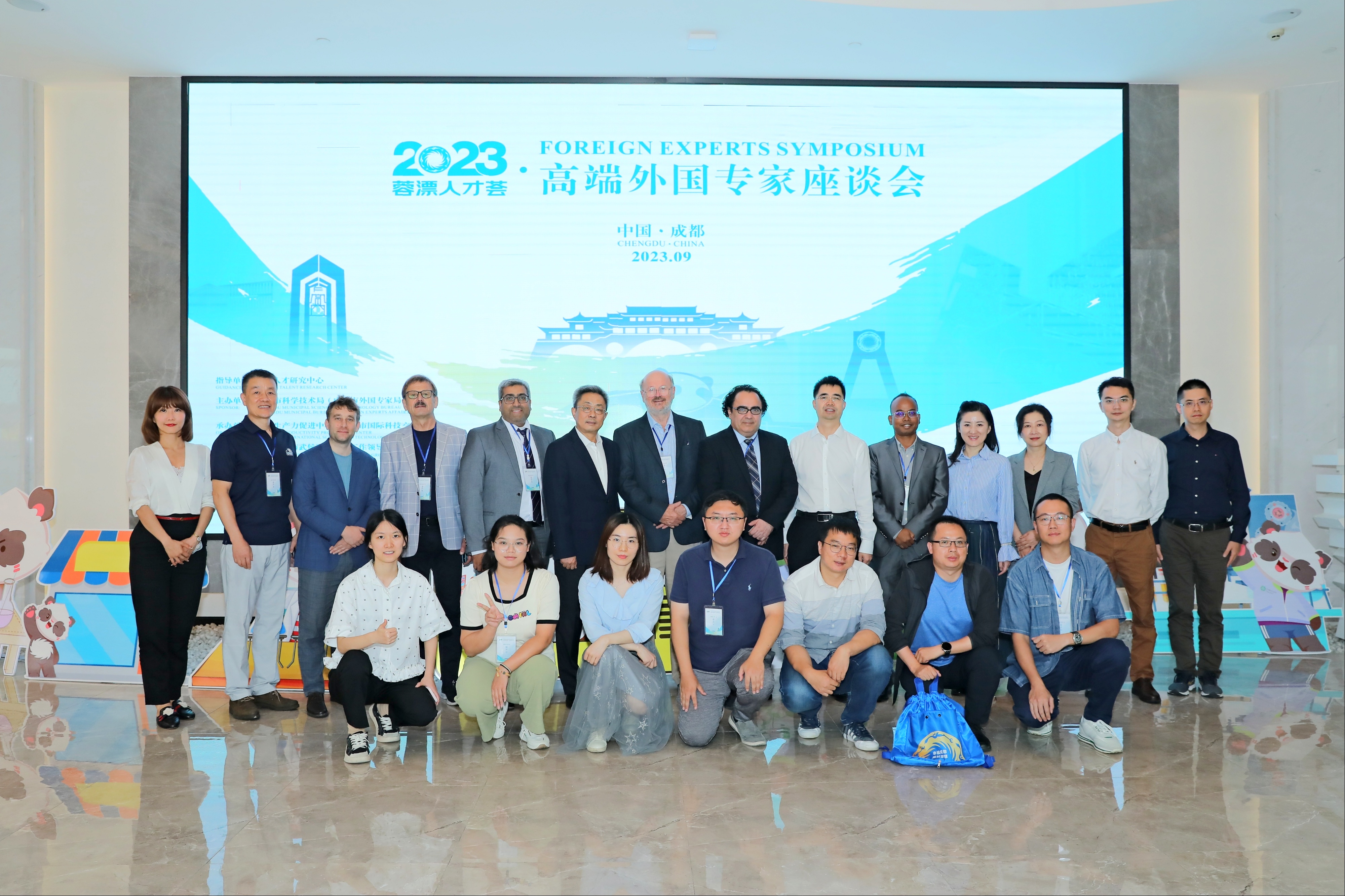Enjoy Chengdu's Strong Atmosphere of Innovation

A?photo?of?foreign?experts?and?reporters?at?the?foreign?experts?symposium,?Chengdu,?September 22,?2023.?(PHOTO:?Chengdu?Municipal?Bureau?of?Science?and?Technology)
By?BI?Weizi
Swedish scientist Henry Radamson, a professor at the Chinese Academy of Sciences (CAS) and also a researcher at the Guangdong Greater Bay Area Institute of Integrated Circuit and System, calls Chengdu, capital of Sichuan province in southwest China, "an ideal place for scientists to conduct research."
"I hope more foreign experts can come here. Go to China, get to know China, and become a communicator who can tell Chinese stories well," he said.
Radamson was one of the eight foreign experts who attended a symposium on sci-tech innovation, international talent exchange and international sci-tech cooperation in Chengdu on September 22, sharing their views on the future of China, particularly Chengdu.
Hossin Md Altab, a Bangladeshi expert with Chengdu University, said the symposium gave him first-hand experience of Chengdu's strong atmosphere of sci-tech innovation. He was impressed by the digital technology for rural revitalization at the Tianfu Agricultural Expo Park. He said it shows that scientific and technological innovation is being integrated into all aspects of Chengdu's economic and social development, providing a strong impetus for high-quality growth.
Viktor Gouretski, a German scientist from the Institute of Atmospheric Physics at CAS, called for closer international cooperation in social and natural sciences as well as in arts and culture to address global problems and achieve sustainable and harmonious coexistence. The global ocean climate is an important part of the climate system. Its study is not limited by geography and is closely related to every country on Earth, he said.
Giving a greater sense of belonging
British-Canadian Michael Crook, winner of the Chinese Government Friendship Award, said the key to bringing in foreign talents is to increase their sense of belonging. "By relaxing the requirements for talent introduction and inviting some foreign talents with potential to come to China, the talents will have a greater sense of belonging," he said.
Over the past decade, Zeeshan Shirazi, a Pakistani researcher at the Aerospace Information Research Institute, CAS, has witnessed China’s rapid progress in social development and scientific innovation and technological advancement, for which he says "talent is the key driving factor." Citing the Chengdu Innovation and Entrepreneurship Incubator as an example, he said that more incubators can be established to build Chengdu into a talent center for business and innovation, so that more foreign talents can seek more opportunities for personal development in China and work together for a better life.
Love for Chengdu
Matej Zima, a Slovenian scholar working at the College of Literature and Journalism at Chengdu University, praised the city's comfortable living environment. "Chengdu has become a very convenient and rapidly developing city, with an extensive subway network and two major international airports," he said, commenting on the city’s welcoming attitude towards talents from around the world.
Wang Yige, an American expert from Chengdu University, used poetry to describe his feelings for Chengdu, from Chengdu's superior climate to its historical heritage, "Chengdu has a strong historical heritage. You can still find calamus and realgar in the streets and alleys of Chengdu," Wang said, referring to two Chinese medicinal herbs that are found only in ancient poetry. Also, he mentioned Chengdu’s inclusiveness, which is important for attracting foreign talents.
Carl Crook, Michael Crook’s brother and an international logistics and wine business operator who is keenly interested in Chinese culture and history, said he has a deep connection to Chengdu. "I lived in Chengdu for a while, and I can see that the city has made great achievements in urban development and talent attraction in recent years."
To enhance Chengdu's urban attractiveness, he suggested Chengdu further explore its rich historical and cultural resources, so that more foreign talents can understand the city.







